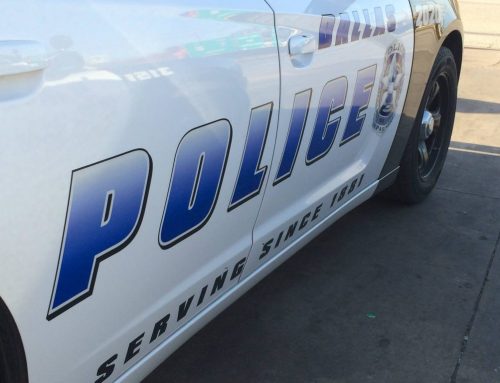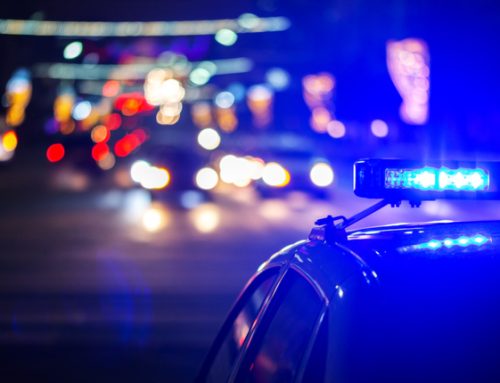Each month, the Advocate visits with Sgt. Michael Gurley, Sr. Cpl. Edward Vasquez and Sr. Cpl. Rick Janich of the East Dallas Storefront police station, 1327 N. Peak Street (670-5523). Three police officers and five community service workers are employed at the Storefront, which coordinates multilingual services ranging from tutoring to crime prevention. The Storefront is becoming known for its bicycle patrol officers, who pedal the streets of East Dallas weekdays. The City of Dallas funds the Storefronts, but numerous volunteers and organizations provide both hours and funds to develop special programs aimed at building better relations among police officers and neighborhoods. (Editor’s Note: Officer Gurley was vacationing and did not participate in this month’s conversation.)
Advocate: The other day, I read that several Dallas officers had been accused of sexual assault while on duty. How does something like that reflect on you and your jobs?
Edward: I don’t really know all of the facts. Unfortunately, sooner or later that type of thing happens everywhere (in other cities). This (Dallas) is a pretty clean department, especially compared with the departments up north.
Rick: There are a lot of politics up north, while here it’s not that bad. They’re unionized up there, and that makes a big difference.
Edward: The attitudes are different here. Texans, as a whole, won’t put up with that stuff.
Advocate: How about the Los Angeles beating incident? Any comments on that?
Rick: Well, I know this: I see a lot of people getting out video cameras now when we’re around. You just get the feeling now that people are watching us more.
Edward: People are pretty quick to get involved, especially around here. They’re not passive anymore. We had a beer bottle thrown at us the other day in an apartment complex, but the people (who threw the bottle) weren’t concerned about it. They don’t think the courts are going to do anything to them.
Rick: And, usually, they don’t. If you want to see how courts work, you should go sit in court for a day like we have to do. It’s pretty sobering.
Edward: Anytime we get out here and have to use force, deadly or otherwise, on someone, people don’t think anybody looks at it.
Rick: Hey, we’re scrutinized intensely. The grand jury, the citizen’s review board, the FBI.
Advocate: How do you feel about the extra scrutiny of your job?
Rick: If somebody wants to go out and videotape me doing my job, that’s OK by me. I don’t do anything differently.
Edward: In situations like that (in Los Angeles), you know, I’ve been in chases after somebody refuses to stop. The officer can get frustrated because of the system, knowing nothing will probably happen to the suspect. Everybody is a human being, even behind the uniform. That doesn’t excuse the action, though. And it looks like they (the Los Angeles officers) just lost it. They just flat lost it. But you get someone who’s dragging you through the streets at 100 miles per hour, you get…(Edward pauses)…irritated, because they’re endangering your life, too.
Advocate: But there were so any officers involved, or so it seems.
Rick: I saw the tape, and I only saw three guys really taking part. The rest of them, well, they may have arrived later, and they may not have known what started the whole thing. They should have done something, but maybe they didn’t know what had happened.
Edward: You know, you get out there, and you get to fighting with someone, it’s hard to shut it off just like that. The adrenalin really gets pumping. A general rule I go by is that as long as we’re scuffling, anything goes that is legal and meets departmental policy, because when it’s over, I’m going home alive.
Rick: You know, it used to be against the law to kill a police officer. It’s not anymore. An officer has a split second to make his decision, and all the review boards, they take four to six weeks to make theirs. It’s just a different decision process.
Advocate: How do you respond, how does your body respond, when someone is firing a gun at you?
Edward: On the target range, the shots are real loud. When the actual shots are fired, you get what seems like tunnel vision. It seems real quiet. In a situation like that, the shots seem muffled, like a towel is around the gun. You’re thinking, “I know I’m justified in this situation, but will all of the people who review it later on think I was justified?” or “What’s behind the suspect in case I miss him?” You’re thinking all this while he’s shooting rounds at you. I tell you, when you get done writing the reports a few hours later, your heart is still pounding.
Advocate: Is getting shot a daily concern while you are patrolling the neighborhood?
Edward: People just don’t realize how bad it is out here. No matter where you are in the city – here, North Dallas, wherever – it’s bad out there.
Rick: If the judicial system doesn’t make punishment hurt, then what does it matter? It seems to me that the criminals are getting the long end of the stick.
Advocate: Why do you do this job then, if you don’t feel like you’re making a difference?
Rick: If we didn’t think we were making a difference, I couldn’t do it anymore. You know, the thin blue line…
Edward: People don’t realize how thin that line is. It’s definitely not in vogue to be a police officer these days.
Rick: But, you know, when I go home everyday, I can usually think of someone, at least one person, whom I helped that day or whose life was made a little better because of something I did. And if I didn’t feel that way, I couldn’t do this everyday.





